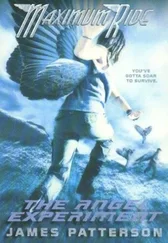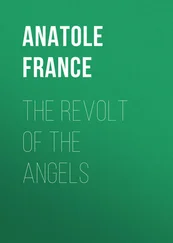Yukio Mishima - The Decay Of The Angel
Здесь есть возможность читать онлайн «Yukio Mishima - The Decay Of The Angel» весь текст электронной книги совершенно бесплатно (целиком полную версию без сокращений). В некоторых случаях можно слушать аудио, скачать через торрент в формате fb2 и присутствует краткое содержание. Год выпуска: 2010, Издательство: CCV Digital, Жанр: Старинная литература, на английском языке. Описание произведения, (предисловие) а так же отзывы посетителей доступны на портале библиотеки ЛибКат.
- Название:The Decay Of The Angel
- Автор:
- Издательство:CCV Digital
- Жанр:
- Год:2010
- ISBN:нет данных
- Рейтинг книги:5 / 5. Голосов: 1
-
Избранное:Добавить в избранное
- Отзывы:
-
Ваша оценка:
- 100
- 1
- 2
- 3
- 4
- 5
The Decay Of The Angel: краткое содержание, описание и аннотация
Предлагаем к чтению аннотацию, описание, краткое содержание или предисловие (зависит от того, что написал сам автор книги «The Decay Of The Angel»). Если вы не нашли необходимую информацию о книге — напишите в комментариях, мы постараемся отыскать её.
The Decay Of The Angel — читать онлайн бесплатно полную книгу (весь текст) целиком
Ниже представлен текст книги, разбитый по страницам. Система сохранения места последней прочитанной страницы, позволяет с удобством читать онлайн бесплатно книгу «The Decay Of The Angel», без необходимости каждый раз заново искать на чём Вы остановились. Поставьте закладку, и сможете в любой момент перейти на страницу, на которой закончили чтение.
Интервал:
Закладка:
“I’m terribly sorry to have kept you waiting,” she said brightly. The face with its sculptured smile came toward him.
“My but you’re looking grand.”
“Thank you.” Briefly and abstractedly, in the Western fashion, she showed him her well-shaped nostrils.
The aperitifs came.
“Perhaps we should turn down the lights.”
The butler turned off the chandelier lights. In the flickering of the Christmas tree, Keiko’s eyes flickered, as did the beads on her dress. Tōru was beginning to feel uneasy.
“The others are late. Or is it that I am too early?”
“The others? You’re my only guest this evening.”
“So you were lying about the others?”
“Oh, I’m sorry. I changed my plans. I thought I would have my Christmas alone with you.”
“I think I’ll ask to be excused, then.”
“Why?” Seated quietly, Keiko made no motion toward stopping him.
“Some sort of plot. Or a trap. Something in any case you’ve talked over with Father. I’m tired of being made fun of.” He had disliked this old woman from their first meeting.
Keiko was motionless. “If it were something I’d talked over with Mr. Honda, I wouldn’t have gone to so much trouble. I invited you because I wanted to have a good talk with you, all by ourselves. It is true that I lied to you, because I knew you wouldn’t come if you knew you were to be my only guest. But a Christmas dinner with only two people is still a Christmas dinner. Here we are both of us in party dress.”
“I suppose you want to give me a good lecturing.” Tōru was angry at himself for having let her make her excuses.
“Nothing of the sort. I just want to talk with you quietly about some things Mr. Honda would throttle me for if he were to find out. They are secrets that only Mr. Honda and I know. If you don’t want to listen, well, that is that.”
“Secrets?”
“Just sit down there quietly, if you will.” An elegantly sardonic smile on her lips, she pointed to the somewhat worn Watteau garden party on the chair Tōru had just vacated.
The butler announced dinner. Opening doors Tōru had taken to be a wall, he ushered them into the next room, where the table was set with red candles. Keiko’s dress jingled.
Not one to encourage conversation, Tōru ate in silence. The thought that the skill with which he managed his knife and fork was the result of Honda’s assiduous tutelage enraged him all over again. Tutelage to make people think him a long-time adept of a cravenness he had not known until he met Honda and Keiko.
Keiko’s fingers at knife and fork, beyond the heavy baroque candlesticks, absently quiet and diligent, like an old woman at her knitting, were a young girl’s fingers brought into old age.
The chilled turkey was tasteless, like the dry skin of an old man. The chestnut stuffing and the cranberry jelly had for Tōru the sourly saccharine taste of hypocrisy.
“Do you know why you were so suddenly sought after to become heir to the house of Honda?”
“How should I?”
“Very easygoing of you. You haven’t wanted to know?”
Tōru did not answer. Putting down her knife and fork, Keiko pointed through the candle smoke at his tuxedo front.
“It’s all very simple. It’s because you have three moles on your left chest.”
Tōru was unable to hide his surprise. Keiko knew of those three moles, the root of his pride, which through all his life should have attracted the attention of no one but himself. An instant later he had brought himself under control. The surprise had come from the fact that, by chance, the symbol of his own pride had coincided with a symbol of something for someone else. Though the moles may have set the something in motion, that need not mean that he had been found out. But Tōru had underestimated the intuitions of the aged.
The surprise so clear on his face seemed to give Keiko greater confidence. The words poured forth.
“See? You can’t believe it. It was all too foolish, too nonsensical from the start. You have told yourself that you have managed everything coolly and realistically, but you swallowed the nonsensical premises whole. Who would be so foolish as to want to adopt a complete stranger on a single meeting just because he had taken a liking? What did you think when we first came with the proposal? We made all sorts of excuses to you and to your superiors, of course. But what did you really think? It puffed you up, I should imagine. People like to think they have their strong points. You thought that your childish dreams and our proposal matched admirably? That your strange childish confidence had been justified? That’s what you thought?”
Tōru was for the first time afraid of Keiko. He felt not the slightest constraint because of class, but there are persons endowed with a special nose for scenting out worth. They are the angel-killers.
The conversation was interrupted by dessert. Tōru had let the moment for an answer pass. He knew that he had underestimated his adversary.
“Do you think that your hopes and those of someone else coincide, that your hopes can be smoothly realized for you by someone else? People live for themselves and think only of themselves. You who more than most think only of yourself have gone too far and let yourself be blinded.
“You thought that history has its exceptions. There are none. You thought that the race has its exceptions. There are none.
“There is no special right to happiness and none to unhappiness. There is no tragedy and there is no genius. Your confidence and your dreams are groundless. If there is on this earth something exceptional, special beauty or special evil, nature finds it out and uproots it. We should all by now have learned the hard lesson, that there are no ‘elect.’
“You thought, didn’t you, that you were a genius beyond compensation. You thought of yourself, didn’t you, as a beautiful little cloud of evil floating over humanity.
“Mr. Honda saw it all the minute he saw your moles. He decided in that instant that he must have you with him, to save you from the danger. He thought that if he left you as you were, if he left you to your ‘fate,’ you would be killed by nature at twenty.
“He tried to save you by adopting you, by smashing to bits your ‘godlike’ pride, by drilling into you the world’s rules for culture and happiness, by making you over into a perfectly ordinary young man. You did not recognize that you had the same starting point as the rest of us. The sign of your refusal to recognize was those three moles. It was affection that made him adopt you without telling you why he wanted to save you. The affection, of course, of a man who knew too much of the world.”
Tōru was more and more uneasy. “Why do you say I will die at twenty?”
“I think probably the danger has passed. Let’s talk about it in the other room.”
A bright fire had been lighted in the fireplace. Below the mantel, a gold-clouded alcove in the Japanese style with a Kōtatsu hanging, two small golden doors opened to reveal the fireplace. Tōru and Keiko sat before the fire, a small table between them. Keiko repeated the long story of birth and rebirth she had had from Honda.
Tōru listened, gazing into the fire. He started at the faint sound of a collapsing log.
Clinging to a log with its smoke, the flame would twist and grow, and then show again in the darkness between log and log, its bed rich with a bright, still repose. Like a dwelling, the small floor dizzying in its reds and vermilions was deep in quiet, marked off by a rough frame of logs.
Sometimes the smoke bursting through the somber logs was like a grass fire far out on a night plain. There were great vistas in the fire, and the shadows moving in the depths of the fireplace were a miniature of the flames of political upheaval tracing shadows across the heavens.
Читать дальшеИнтервал:
Закладка:
Похожие книги на «The Decay Of The Angel»
Представляем Вашему вниманию похожие книги на «The Decay Of The Angel» списком для выбора. Мы отобрали схожую по названию и смыслу литературу в надежде предоставить читателям больше вариантов отыскать новые, интересные, ещё непрочитанные произведения.
Обсуждение, отзывы о книге «The Decay Of The Angel» и просто собственные мнения читателей. Оставьте ваши комментарии, напишите, что Вы думаете о произведении, его смысле или главных героях. Укажите что конкретно понравилось, а что нет, и почему Вы так считаете.











